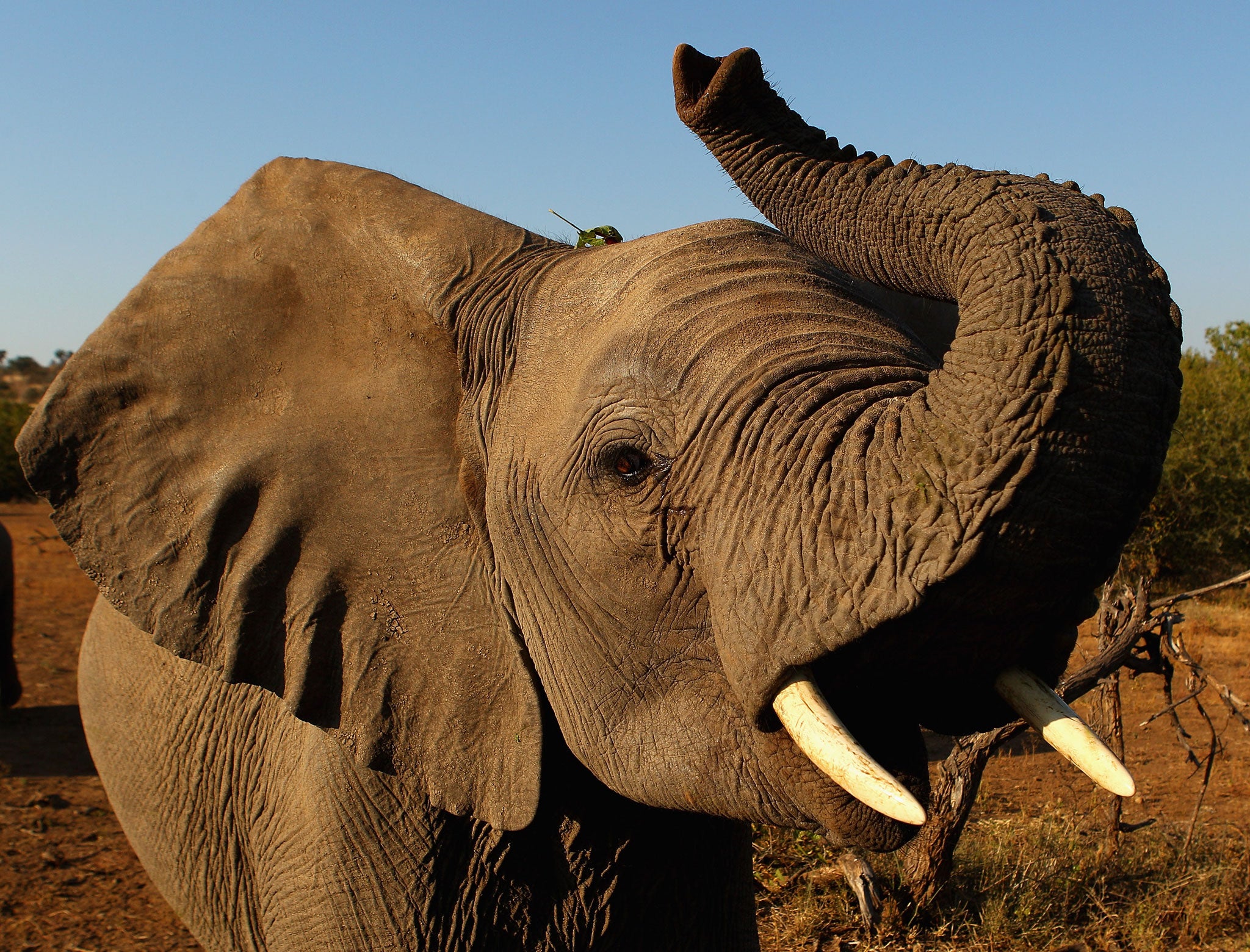Without action against the renewed scourge of poaching, these giants of nature will vanish
Together we can not only do something to stop the slaughter of these animals, but also help those whose lives are being blighted by this unfolding crisis


Your support helps us to tell the story
From reproductive rights to climate change to Big Tech, The Independent is on the ground when the story is developing. Whether it's investigating the financials of Elon Musk's pro-Trump PAC or producing our latest documentary, 'The A Word', which shines a light on the American women fighting for reproductive rights, we know how important it is to parse out the facts from the messaging.
At such a critical moment in US history, we need reporters on the ground. Your donation allows us to keep sending journalists to speak to both sides of the story.
The Independent is trusted by Americans across the entire political spectrum. And unlike many other quality news outlets, we choose not to lock Americans out of our reporting and analysis with paywalls. We believe quality journalism should be available to everyone, paid for by those who can afford it.
Your support makes all the difference.To donate go here now
The bloodied carcasses of elephants now being discovered in shocking numbers across Africa are not the only reason the present poaching crisis is a tragedy that must urgently be addressed.
It is also because of the conservation rangers and wildlife policemen, often hopelessly ill-equipped and out-gunned, being killed in an increasingly militarised conflict that the poachers at this point are winning.
It is the villagers being forced from their homes or threatened with retribution if they do not help those intent on feeding Asia’s seemingly insatiable appetite for ivory.
It is the criminal networks that are using the vast sums that can be made - a gram of ivory in many parts of Asia now being worth more than a gram of gold - to further spread corruption and undermine the rule of law in sovereign states and treat international treaties with contempt.
Read more:
More information: The 'Space for Giant's campaign
One hears of government officials, port authorities, even crews on national airlines, all bent by the power of hard currency to turn a blind eye or assist in the destruction of one of the world’s most iconic wild animals and to help fuel the growth of ruthless criminal gangs.
For these elephant hunters are not just local people undertaking their traditional hunting practices or desperate farmers frustrated by elephants trampling their crops, although both do still exist.
Rather they include organisations that rank among the most loathsome in the world: al-Shabaab, the Somalia extremists who carried out the slaughter in Nairobi’s Westgate mall, Joseph Kony’s Lord’s Resistance Army, which routinely kidnaps and drugs children to turn them into child soldiers, and Janjaweed, the roving gunmen who carried out the genocide in Darfur.
That is why we at the Independent have chosen to focus on this issue for our 2013 Christmas Campaign. Together we can not only do something to try to stop the slaughter of the animals bearing the brunt of this avarice but also, both through the money raised and by campaigning on the key issues involved, help those whose lives are being blighted by this unfolding crisis.
There is no question the present number of elephant deaths is horrific. The booming of the Asian economies saw the emergence of an extensive middle class that in many cases continued to see ivory as an aspirational product, and now had the disposable money to buy it. The law of supply and demand then meant the price rocketed and the number of killings soar.
The tragedy is that many in Asia do not appreciate the consequence of their purchases as it is not universally known elephants are killed for their ivory. In China some 70 per cent of people were found in a survey to believe tusks grew back like fingernails.
Education on this issue is gravely needed. Some 36,000 elephants a year are now being killed a year in Africa, around 100 a day. Unless the trend is stopped, the species is on course to be extinct in the wild in a decade. In Chad, which once had 15,000 elephants, there are 400. In Sierra Leone the last elephant was lost two years ago.
This year all the funds raised in our Christmas campaign will go to the East Africa-based conservation charity Space for Giants. Our objective was to identify a partner that did not just act as an umbrella organisation for the distribution of funds but which had a track record of implementing innovative and successful programmes on the ground that made a measurable difference.
Space for Giants does exactly that. Its anti-poaching programmes have been among the most successful on the continent, achieving a 64 per cent drop in the areas where they are being implemented. It plan to launch an educational programme in Asia, with online resources and a cartoon aimed at children.
The charity’s staff are actively engaged in drawing African communities into the conservation fight as well as in running initiatives to explain the urgency of the problem faced. There can be no solution to the poaching crisis without local involvement and support.
Government or interstate initiatives mean nothing if those in affected areas do not appreciate the acuteness of the situation and the effect it will have on indigenous economies, particularly tourism. With its partners, Space for Giants has helped established a network of village activists who not only act as an early warning system for poacher incursions but educate their neighbours on what is now at risk.
The charity has signed a contract guaranteeing all the money donated by you, our readers, will be spent on conservation work with not one penny spent on administrative costs. This means all donations will go directly to where they will make the most immediate difference.
Yesterday I arrived in Kenya to spend the next few days understanding more about the poaching crisis and the essential work Space for Giants undertakes, which I will be writing about in this newspaper.
During the coming weeks our coverage will take us to conservation fights in not only Kenya but countries such as Tanzania, Uganda and South Sudan. We will investigate the supply lines and criminal middlemen that see the ivory reach and finally be sold in Asia. We will campaign on the key issues and put pressure on politicians in the UK, Africa and Asia to elicit change, not least at the Illegal Wildlife Trade conference being hosted by the Foreign Office in London at the start of next year.
The extent of the crisis facing Africa’s endangered wildlife is now at its most acute for decades, and the corrosive impact of poaching spreading. Our objective in the coming weeks is to try to help ensure no one will one day have to explain to their children what an elephant once looked like.
Evgeny Lebedev is the owner of The Independent titles and London Evening Standard
You can read more about the Independent's Christmas campaign here
Join our commenting forum
Join thought-provoking conversations, follow other Independent readers and see their replies
Comments